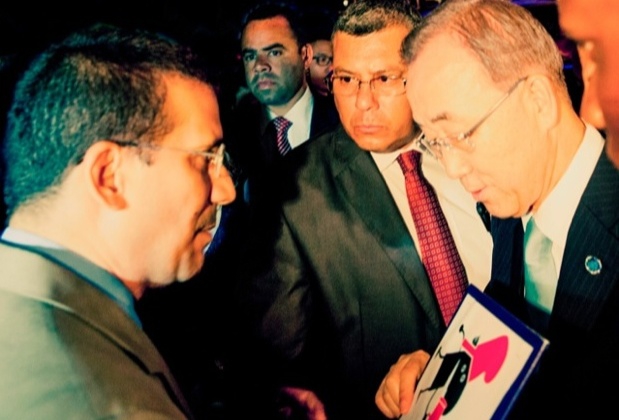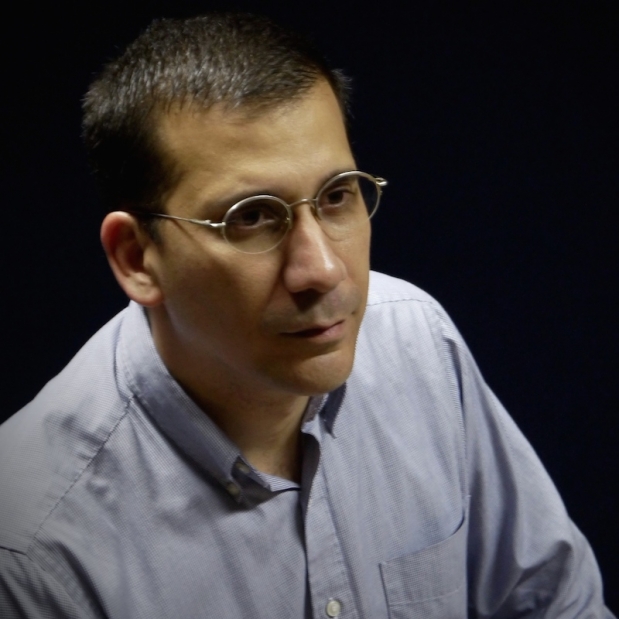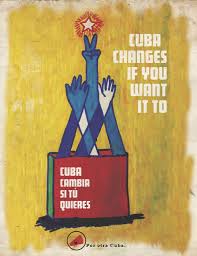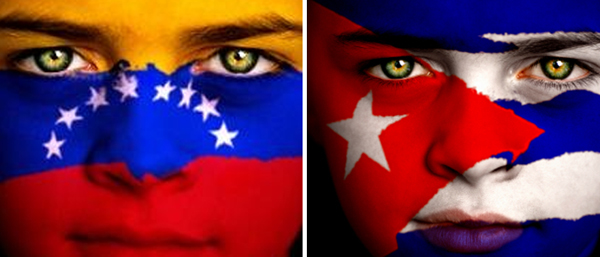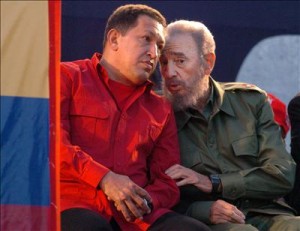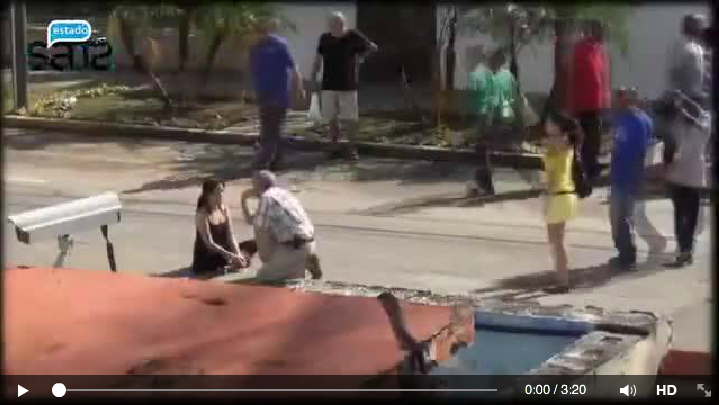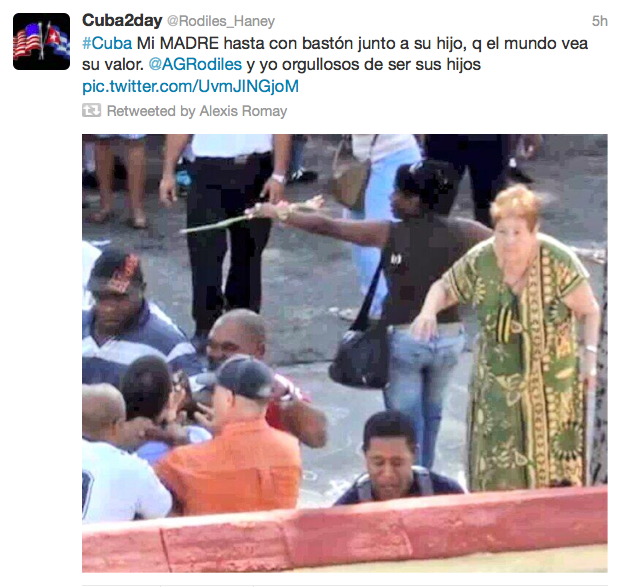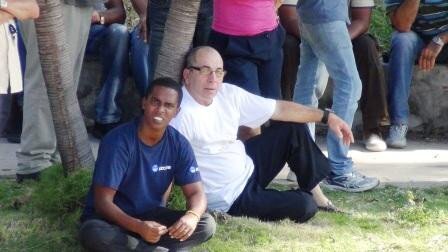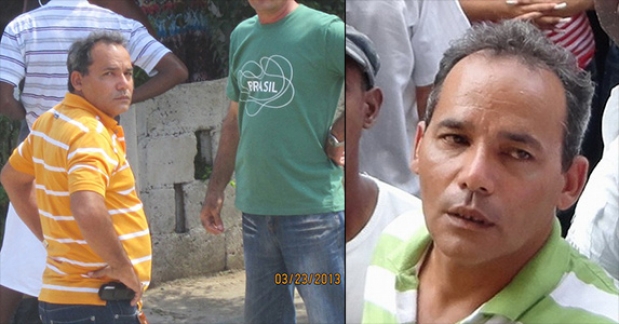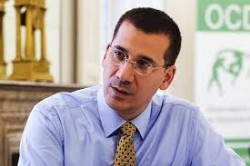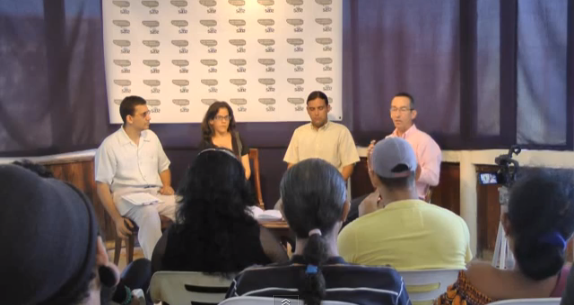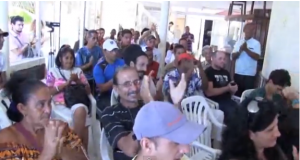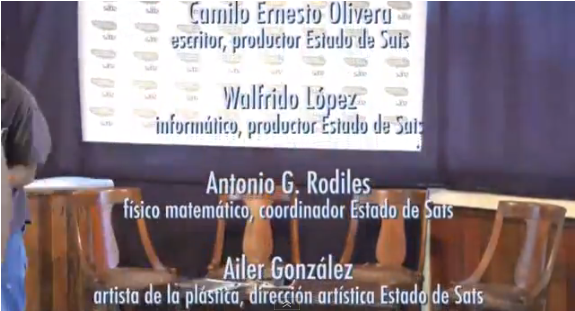Cuba citizens every day have to deal with a power that demands more obligations and which, in exchange, grants very few rights. Living conditions are degrading with special emphasis on the vulnerable sectors, such as old people. The so-called new entrepreneurs are swimming in a sea of corruption and the informal economy and the stampede to leave the country continues to be the objective of thousands and thousands of Cubans, especially the young. continue reading
The opposition scenario is clearly being realigned. The escape of talents and entrepreneurs has generated a sensitive vacuum in the group of social actors who should be pushing and supporting change. The impunity with which the State practices violence leaves little room for political groups to move, but the growing discontent generates increasing hotspots that are controlled with declining effectiveness.
PDE: A media intensive initiative asking President Obama to lift the embargo has just been released. What do you think about it?
AR: We should be very clear about what we want for our nation. We need, first and foremost, the reestablishment of basic rights and freedoms. The international pressure, which includes the American embargo, is very necessary to at least contain the impunity enjoyed by the totalitarian regime.
If Cuban citizens continue to be totally defenseless, the cost in political changes will be very high. Certain attitudes that border on masochism and that ask for complacency have been very visible lately and have devastated the country. Prominent figures of civil society have become too evasive and unclear about their political positions, which undoubtedly benefits the regime.
While it would be immature and a little cowardly to close all the doors, it would also be fatal to accept a complicit relativism without a base of principles or axioms that guide our actions.
For decades on our Island we’ve been ruled by lies and simulation, and it’s time for honesty and verticality to claim space in a nation that has been beaten down with regards to those principles.
I think that asking for changes toward the regime without demanding respect for our rights, is an act of contempt towards those of us directly confronting the Cuban dictatorship. Human decency implies verticality toward those who have been the executioners of our nation. Those who brandish the false discourse of tolerance and reconciliation and who hide their opportunism behind a call for plurality of opinions, don’t deserve my respect.
PDE: The regime’s attempts at rapprochement with the United States are increasing to the extent that the political and social crisis in Cuba is worsening. At times, the focus on bilateral relations gains prominence to the detriment of the internal situation in Cuba.
AR: The survival of the regime has always depended on its capacity to be a parasite. Cuba is a totally ruined country, without the least possibility of supporting itself, and Cubans outside the Island possess a power they are not using while allowing the regime to continue to benefit from emotional blackmail. Without the remittances from Miami on the island, we would be facing an even more extreme situation.
Today Cubans live on the remittances sent by their families, but these resources are not sufficient to support the bloated repressive apparatus. The capital required for this comes not from the European Union, nor China, nor Russia, that capital could only come from the “empire.”
Paradoxically, the “empire” is the key to the survival of neocastrismo and everything is focused on it. No wonder the battleground on the issue of Cuba has moved to Cuba-US relations, with the regime being the one showing the most interest in this movement. For the pro-democracy actors we have no alternative but to sustain that duel.
However, it is our responsibility to bring to the fore the inescapable issue of basic rights and freedoms. Any discussion should raise these rights as a condition for any interaction with the regime. The basic freedoms of Cubans should not be a negotiation point but a fundamental premise.
PDE: I understand that the campaign For Another Cuba is entering a new phase. What is that about? (Additional link)
AR: After a year and a half without any response to the petition delivered to the National Assembly of People’s Power, we are calling on every Cuban citizen within and outside Cuba to submit their own complaint demanding the ratification of the United Nations covenants (signed by the Cuban government in 2008), which requires a response by the State within a period of 60 days. It’s not the same to ignore responding to a citizen’s request, that thousands of citizens make this same request.
Moreover, we are anticipating a possible ratification maneuver without the required implementation. I believe the possibility of pushing the regime to ratify is high, we shouldn’t sit and wait for them to develop an evasion strategy, but rather as of right now we must prepare a response to this reality.
PDE: What has the campaign For Another Cuba accomplished so far?
AR: The campaign has had an unquestionable success in bringing to the forefront the ratification of the Covenants, which is essentially the issue of fundamental freedoms. The most notable example is the exhortation during the last Community of Latin American and Caribbean States (CELAC) summit made by Secretary General Ban Ki Moon, for the regime to ratify them.
At the same time, a group of activists, professionals and artists has come together around the campaign, seeing this demand as a concrete and effective way of working for the democratization of the country. With the collaboration of dozens of activists, we have distributed among the population a ton of printed and audiovisual material. We can say that today, thanks to the campaign, a large group of Cubans know about their rights.
However, realistically, we know that the work is just beginning. The implementation of our fundamental rights entails a process of democratic transition and no one has to tell you how complicated this issue is after 55 years of dictatorship.
PDE: Some critics, or rather skeptics argue that the regime could ratify the Covenants and then not implement them.
AR: I believe that’s one of the most probably scenarios. The regime will see itself forced to ratify them at some not too distant time and will probably try to do so through reservations and still evade their implementation. However, the sole fact of seeing them forced to accept an opposition demand is a victory for us.
How to respond to a possible ratification if they try to use it as maneuver? Well we must have a package ready for necessary transformations in the legal framework and other orders to prevent the violation of the commitments assumed. We are working on identifying all possible violations of fundamental rights in current laws as well as the regulations and provisions arising from the totalitarian structure of the regime in which they violate the letter of these international conventions.
It’s important to clarify they these proposals would be specifically aimed at issues directly connected with the Covenants and not those that presume a possible democratic scenario. I think we shouldn’t lose ourselves in a range of future possibilities when we still don’t know what directions current conditions will take.
PDE: In the campaign, in the new phase you’re talking about, will there be specialized committees working on it? I know there is something about legal security and tax policy. Why start there? What is the current situation and what is the draft proposal about how they will work?
AR: The legal framework of a country establishes the rules that prevail in the dynamic society. Without a legal framework that guarantees fundamental freedoms the result of any process would be too hazardous, no one can guarantee the final destination in a society that works through political patronage, State violence, corruption and a lack of basic principles. We’ll have to find a way to restore basic concepts that govern modern societies.
Moreover, the creation of a legal basis for the emergence of a class of micro, small and medium entrepreneurs is essential. An efficient tax system is also a key to creating the foundations of a healthy state.
Our work has begun on the basic transformations that will have to be made in the Cuban Constitution so that Cubans will recover the minimum rights of citizens. The tax issue is now one of the damaging to Cubans.
PDE: Are there other areas you consider priorities?
AR: There are several areas that have to be reformed in the face of the possible ratification of these international covenants, and one of them is education. Ideology must be separated from education and parents must be able to choose the type of school they want their children to attend; there are old dreams and a demand that must be pressed with the greatest intensity.
The education system faces a terrible crisis, not only material but also one of corruption and a lack of a clear educational policy. Not to mention the disaster caused by the absence of the Internet and the free flow of information.
PDE: The interaction between the internal opposition and the organizations of exile have increased lately. Do you see as positive the new balance of work. What more could or should be done?
AR: I believe this interaction is vital. I can’t say that it’s always been for the benefit of the pro-democracy struggle. Some political actors in exile have tried to impose or stimulate visions barely anchored in the island, visions that presume a non-existent scenario, and far from helping a process of change they generate counterproductive situations.
The motives and interests are many, but it’s clear that several factors must undergo basic changes for the new impulses to prevail. Successes and failures are part of the maturation process that has to happen, the times demand substantial changes.
The joint work along all Cubans who feel a commitment to democratic change must be a sustained collaboration among actors inside and outside of Cuba, especially in the professional, or knowledge, arena. We have mentioned that you can’t think about the transition and the later reconstruction of the nation without a wide participation of the entire human capital today living outside the country.
It would be a leap into the void to ignore so much talent that has abandoned our little island. I dream of having my friends at my side working to create this country that has been missing for so many decades.
Pablo Díaz Espí | Madrid | 22 Mayo 2014
25 May 2014
